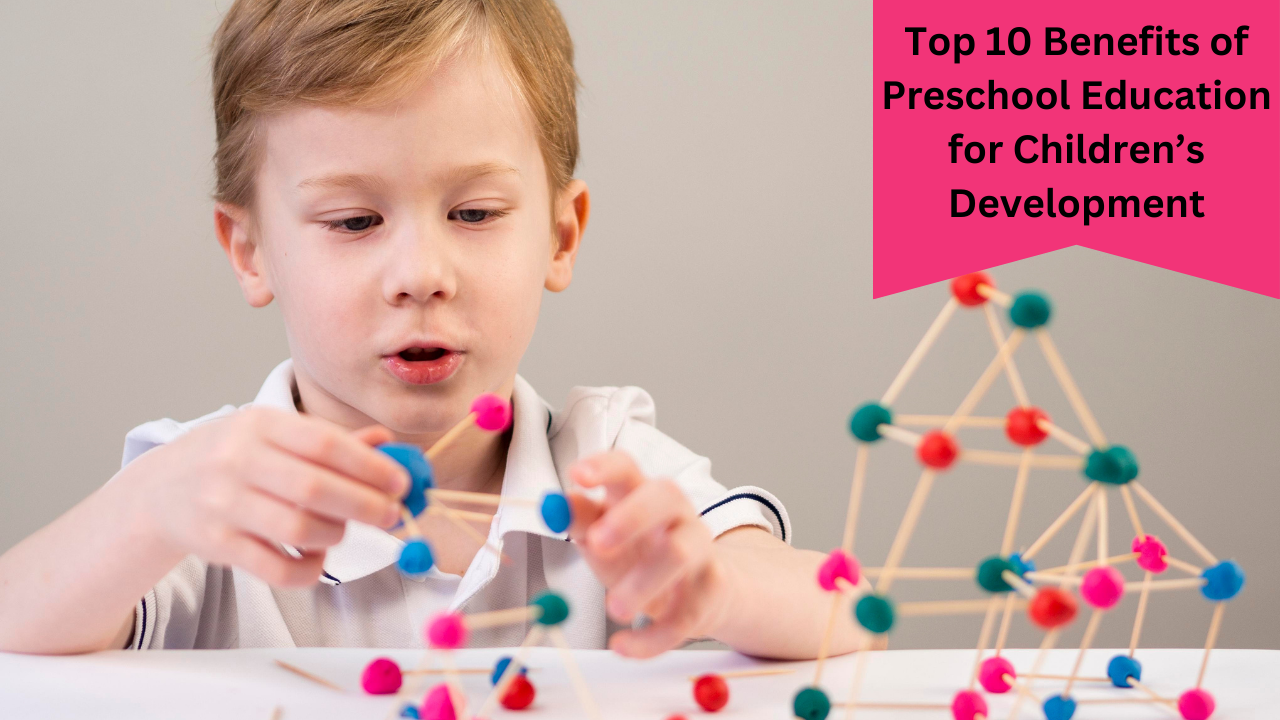The Top Benefits of Preschool Education for Children’s Development
In today’s fast-paced world, early childhood education has taken center stage as an essential stepping stone in a child’s development. Preschool education, typically designed for children aged 3 to 5, serves as the first formal introduction children have to learning, social interactions, and structured play. The impact of quality preschool education on children’s development is profound and multifaceted. Here, we explore the top benefits of preschool education and its critical role in nurturing young minds.
-
Enhanced Cognitive Development
One of the primary benefits of preschool education is its significant contribution to cognitive development. Children engage in various activities designed to stimulate critical thinking and problem-solving abilities. At preschool, kids explore numbers, letters, shapes, and colors through interactive play, storytelling, and hands-on activities. Research shows that children who attend preschool tend to perform better academically in later years, as they develop foundational skills that promote literacy and numeracy.
-
Improved Social Skills
Preschool is a child’s first opportunity to interact regularly with peers outside their family circle. This environment fosters essential social skills, such as sharing, cooperation, and communication. Most of the children learn to navigate friendships, resolve conflicts, and work as part of a team. These social interactions not only help develop empathy and emotional intelligence but also prepare children for future collaborative environments, such as elementary school and beyond.
-
Increased Emotional Development
Emotional growth is equally critical during the early years. Preschool education provides children with a safe space to express their feelings and understand the emotions of others. Teachers and caregivers often guide children through basic concepts of self-regulation, helping them manage their emotions in challenging situations. This emotional literacy can significantly reduce anxiety and behavioral issues as children progress through school.
-
Boosted Confidence and Independence
In a preschool environment, children are encouraged to make choices, explore new ideas, and take risks in a supportive setting. As children master new skills—be it putting on their shoes, sharing a toy, or participating in group activities—they develop a sense of accomplishment that encourages them to tackle new challenges both inside and outside the classroom.
-
Cultivation of Creativity and Imagination
Preschool education places a strong emphasis on play-based learning, allowing children to explore their creativity and imagination. Through art, music, and dramatic play, children are given the freedom to express themselves and think outside the box. This creativity is not merely about art; it extends to innovative thinking and problem-solving skills essential for future academic and life success.
-
Preparation for Future Academic Success
Studies indicate that children who attend preschool are better prepared for the academic rigors of kindergarten and beyond. Preschool introduces children to routine, structure, and learning expectations. By familiarizing them with the school environment, children transition more smoothly to formal schooling, often leading to higher achievement levels as they progress through their educational journey.
-
Stronger Parent-Teacher Partnerships
Preschools often emphasize the importance of building strong relationships between parents and teachers. Educators provide parents with insight into their child’s development, learning styles, and social interactions. Educators also often offer resources and strategies for promoting learning outside the classroom, fostering a community dedicated to child development.
-
Foundation for Literacy and Numeracy Skills
It’s not all ABCs and 123s, but preschool is where the building blocks for future academic success are laid. Through games, songs, and interactive play, kids start getting comfortable with letters, numbers, and basic concepts. So when they hit the classroom, they’re already ahead of the curve.
-
Enhanced Communication Abilities
Preschool teaches kids more than just the ABCs of language – it’s where they learn to express themselves clearly, listen actively, and engage in meaningful conversations. Whether it’s sharing stories with friends or asking questions, preschoolers become effective communicators from an early age.
-
Independence and Confidence
Attending preschool empowers children to step out of their comfort zones. Whether it’s learning to carry their backpack or asking for help from a teacher, these experiences foster independence and self-reliance. As they accomplish tasks and receive positive reinforcement, children build confidence—an essential trait that encourages continued exploration and willingness to take risks in learning.
Family Involvement
Many preschools encourage active participation from families, recognizing that a child’s growth is most impactful when supported by both educators and parents. Through family events, conferences, and volunteer opportunities, parents become integral partners in their child’s education, fostering a community that enhances learning both at home and in the classroom.
Nowadays lifestyle has changed a lot. We need things that can help to improve the overall performance of our child. Create a stress free environment and add new creative things according to your child. If research examines the process of brain development of children then at birth, the average baby’s brain is about a quarter of the size of the average adult brain. The surprising thing is that its size doubles in the first year itself. It becomes about 80% of adult size by the age of 3 and 90% – almost fully developed – by the age of 5.
For details click here – https://www.ncbi.nlm.nih.gov/books/NBK225562/
Conclusion
Pre-school education is not just a luxury; it is an important investment in a child’s future. As children embark on their educational journey, the skills, knowledge, and social-emotional development they gain in preschool lay a strong foundation for lifelong learning and good citizenship. By recognizing the myriad benefits of preschool education, parents, educators, and communities can work together to ensure that every child has access to this crucial stage of growth, ultimately contributing to a more educated, empathetic, and capable society.
Enquire now: https://www.growinnsteps.com/preschool/
